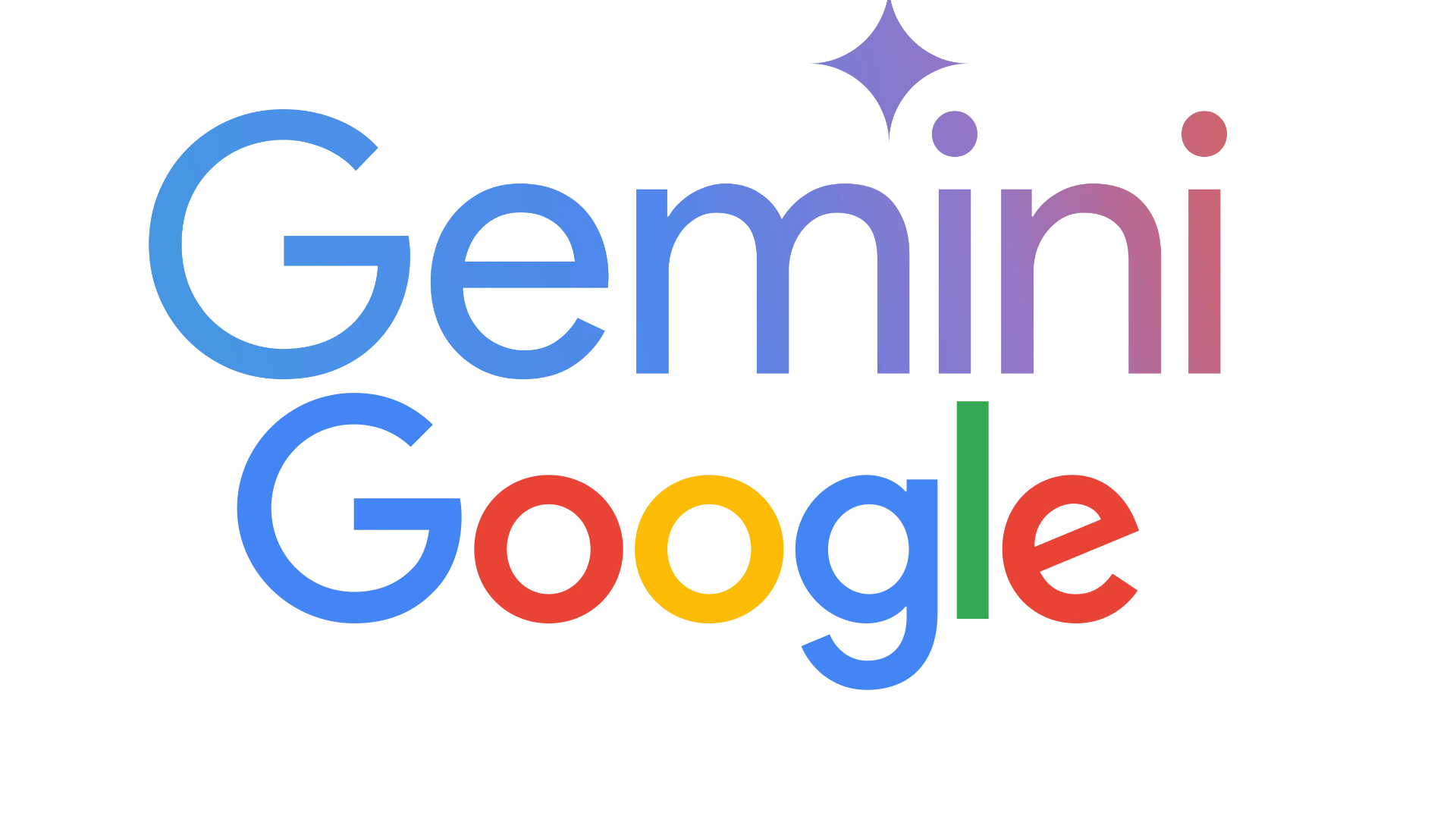Google officially raised the bar in the AI arms race when they release Gemini 2.5 Pro on March 25, 2025 and since then they’ve taken off like a rocket ship. The search giant has positioned itself at the top of nearly all of the artificial intelligence / LLM leaderboards and there doesn’t seem to be a worthy contender in sight.
When the Gemini 2.5 models were released they weren’t just a marginal upgrade—they were a fairly substantial leap forward in ability with tangible performance boosts across coding, reasoning, multimodal input handling, and real-world application development.
With industry leaderboards lighting up in its favor and glowing testimonials from devs across Reddit and enterprise labs, Gemini 2.5 Pro might just be the closest we’ve come to a general-purpose AI developer—and thinker.

In a recent ranking on popular ranking site Chatbot Arena (Link) Gemini 2.5 Pro takes the top two positions, and Gemini 2.5 Flash comes in at position #5.
A New Benchmark King: Gemini 2.5 Pro Dominates Leaderboards
Gemini 2.5 Pro isn’t just being hyped—it’s being measured, and the numbers are hard to ignore.
WebDev Arena: #1 With a Bullet
In the WebDev Arena, which evaluates AIs based on their ability to generate user-preferred, aesthetically functional web applications, Gemini 2.5 Pro surged ahead by 147 Elo points—a massive margin. This isn’t just beating the competition, it’s obliterating them in user satisfaction. Developers are calling it “the best web UI generator they’ve ever used,” and platforms like Cursor, Replit, and Cognition are already integrating its capabilities to push the frontier of agentic software development.

LMArena: Overall Human Preference Champion
Gemini 2.5 Pro also clinched the top spot in LMArena’s general-purpose leaderboard, which measures how often humans prefer one model’s responses over others in blind tests. From casual prompts to technical questions, Gemini consistently produces more accurate, polished, and useful results.
Unmatched Coding Capabilities
If you’re a developer, Gemini 2.5 Pro is a revelation. The latest update—dubbed the “Preview 05-06 (I/O Edition)”—fine-tunes its strength in real-world software development:
- Web App Creation: It builds entire frontends with clean, structured code, full responsiveness, animations, and interaction logic. Demoed apps include a YouTube-powered learning platform and a speech-to-text dictation tool with dynamic UI elements.
- Code Editing & Refactoring: Whether you’re modernizing legacy code, squashing bugs, or rewriting entire modules, Gemini 2.5 handles it all—suggesting elegant solutions and applying consistent styling and best practices.
- AI Agent Programming: Gemini creates step-by-step workflows for agentic systems, from API integrations to multi-stage UI logic. It’s like having a senior developer who doesn’t sleep.
- Fewer Tool Errors: Tool calling—a weakness in prior versions—has been dramatically improved. Whether it’s invoking APIs, using external plugins, or chaining prompts with actions, Gemini now performs with greater reliability and lower failure rates.
Reasoning That Feels Almost Human
Gemini 2.5 Pro is not just smart—it thinks. Google’s clear focus is on building “thinking models,” and it shows:
- Advanced Mathematical Performance: It ranks at or near the top on AIME 2024 and 2025, tackling Olympiad-level math problems with symbolic reasoning rarely seen outside of specialized solvers.
- Scientific Depth: The model excels in STEM-related tasks, producing explanations and walkthroughs that combine accuracy with readability—useful in both education and professional research settings.
- Benchmarks Like “Humanity’s Last Exam”: Without external tool assistance, Gemini demonstrates superior comprehension across fields like philosophy, logic puzzles, law, and history.
Multimodal Intelligence + Massive Memory
One of Gemini 2.5 Pro’s most powerful differentiators is its native multimodal architecture. It understands and combines text, image, audio, and video inputs seamlessly. This allows users to:
- Upload a graph and ask for a data-driven summary
- Feed in UI mockups and receive responsive HTML/CSS/JS code
- Extract timestamps and chapter summaries from long podcast or video transcripts
And with a 1 million token context window (doubling to 2 million soon), it easily handles huge documents, codebases, and long-form reasoning chains—perfect for enterprise workflows, legal research, or scientific writing.
Developers Are Switching—and Talking
Reddit and developer forums are buzzing. Some choice quotes:
- “Gemini 2.5 blew GPT-4o out of the water for real-world development tasks.”
- “I had to switch off ChatGPT. Gemini’s UI and capabilities are just better now.”
- “It wrote a full 30-page Master’s-level paper. And it was good. Better than my own writing.”
- “It did in 3 minutes what took me 3 days before.”
Even users who previously favored GPT-4 or Claude are turning heads, citing Gemini’s blend of fast responses, deep reasoning, and lower hallucination rates.
Accessibility and Future Expansion
Gemini 2.5 Pro is available through multiple channels:
- Google AI Studio (for devs experimenting with the API)
- Vertex AI (for enterprise-scale workloads)
- Gemini App (for general users building web apps with drag-and-drop ease)
- Third-party agents (like Cursor, which now uses Gemini 2.5 as a coding backbone)
And as for what’s next? Google is already eyeing Gemini 3, with rumors pointing toward faster function-calling, stronger real-time search integration, and multimodal planning tools that could inch us closer to practical AGI.
Final Thought: Google’s Comeback Moment?
Just a few months ago, many wrote off Google as trailing OpenAI in the LLM race. Now, with Gemini 2.5 Pro, it seems the momentum has decisively shifted. With powerful tools, real-world usability, and dominant benchmark results, Gemini isn’t just catching up—it’s setting the pace.
Whether this lead holds will depend on how fast competitors respond. But for now, the message from Google is clear: They’re not just in the game. They’re playing to win.
Overview of Gemini as Google’s AI Assistant
Google has been busy upgrading its AI assistant experience with Gemini, the next evolution beyond Google Assistant. Gemini represents a significant leap forward with advanced language understanding capabilities that can handle complex requests. Gemini is designed to be more conversational, capable of understanding context better, and can even work with real-time video and screen inputs to provide more helpful responses.
The rollout of Gemini has been gradual, with Google recently expanding access to more users on mobile devices. New features continue to appear, including Canvas for visual creation and an Audio Overview feature that can generate podcast-style discussions between AI hosts. These additions show Google’s commitment to making Gemini a versatile AI companion that works across different formats and needs.
Google One AI Premium subscribers are getting first access to some of the most cutting-edge capabilities, like Gemini’s ability to interact with live camera feeds and screens. This real-time interaction opens up new possibilities for how people can use AI in their daily lives, from getting help with tasks to learning new skills with visual guidance.
Gemini represents Google’s most advanced AI assistant technology, combining powerful language capabilities with multimodal features. It marks a significant evolution from previous Google AI tools and integrates deeply across Google’s product ecosystem.
Evolution of Gemini and Its Integration with Google Ecosystem
Gemini started as Google’s largest and most capable AI model, developed by Google DeepMind. It replaced Bard as Google’s conversational AI assistant in early 2024. The system has seen multiple iterations, with Gemini 2.0 being the latest major update.
Google has strategically integrated Gemini across its ecosystem. Users can now access Gemini through:
- The dedicated Gemini app
- Google Chrome as a writing tool
- Google Search
- Google Workspace (including Sheets and Docs)
- Mobile devices with Android
This integration allows Gemini to leverage Google’s vast knowledge base while providing contextual assistance within the specific application being used.
Capabilities of Gemini AI Assistant
Gemini offers a wide range of capabilities that extend beyond simple text generation. The AI assistant can:
- Write and edit content at various levels of complexity
- Plan events, schedules, and projects
- Answer questions using Google’s search capabilities
- Create and modify data in spreadsheets and documents
- Generate creative content including stories and poems
Gemini is designed to be multimodal, meaning it can process and generate different types of media. The system comes in three different sizes: Ultra, Pro, and Nano – each optimized for specific use cases and computational requirements.
Recent updates to Gemini focus on “agentic” capabilities, allowing it to use memory, reasoning, and planning to complete complex tasks that require multiple steps.
Gemini 2.0 and Public Preview
Google has launched Gemini 2.0, a significant upgrade to its AI model lineup. The new version brings enhanced capabilities and introduces several variants designed for different use cases and efficiency needs.
Features and Enhancements in Gemini 2.0
Gemini 2.0 represents a major advancement in Google’s AI capabilities. The model introduces native tool use functionality, allowing it to interact more effectively with various applications and services.
One of the most impressive features is the expanded context window of 1 million tokens, enabling the AI to process and reference much larger amounts of information in a single conversation. This makes it more useful for complex research and analysis tasks.
For the first time, Gemini can now natively create images and generate speech. This multimodal approach allows for more versatile interactions and creative applications.
Google has released several variants of the model, including Gemini 2.0 Flash, Flash-Lite, and Pro. Flash-Lite is positioned as Google’s most cost-efficient model, making advanced AI more accessible to developers with budget constraints.
Accessing Gemini AI Assistant’s Public Preview
Gemini 2.0 Flash-Lite has been made available in public preview through Google AI Studio and Vertex AI. This gives developers and organizations early access to test its capabilities.
Users can access the Gemini AI Assistant through various Google services. The public preview offers a chance to experience the latest advancements before full deployment.
To access the preview, users need to visit Google AI Studio or Vertex AI. These platforms provide the necessary tools and interfaces to interact with the model.
Google has designed the preview process to gather feedback from users, helping refine the technology before wider release. This approach allows the company to identify potential issues and make improvements based on real-world usage.
The public preview also helps developers start building applications that leverage Gemini 2.0’s new capabilities ahead of full release.
Frequently Asked Questions
Gemini AI has evolved significantly since its launch, adding personalization features and expanding its capabilities across different applications. Users have been curious about its latest developments, integration options, and how it compares to other Google AI offerings.
What are the most recent advancements in the Gemini AI project by Google?
Google has recently enhanced Gemini with personalization features that can reference a user’s Search history with permission. This allows the AI to provide more tailored assistance based on individual needs and preferences.
Gemini now offers improved language understanding and reasoning capabilities, making it more effective at helping with writing, planning, and learning tasks.
The AI assistant has been designed to work across multiple Google applications, creating a more integrated experience for users who rely on Google’s ecosystem of products.
How can Google’s Gemini AI be integrated into existing applications?
Gemini Code Assist has been developed specifically for developers who want to boost their productivity. It works with personal Gmail accounts, making it accessible to individual programmers and creators.
Google has created Gemini to function as a versatile assistant that can be accessed directly through dedicated Gemini Apps. This direct access allows for easier integration with users’ daily workflows.
The system is built with advanced language processing capabilities, enabling it to understand complex requests and provide helpful responses across different application contexts.
What are the new features included in the latest Google Gemini update?
The latest Gemini update focuses on enhanced personalization, allowing the AI to draw from a user’s Google ecosystem data to provide more relevant assistance.
Gemini now offers more comprehensive help with writing tasks, planning activities, and learning new subjects. These improvements stem from its advanced language processing abilities.
Direct access to Google AI through Gemini Apps has been streamlined, making it easier for users to get assistance when they need it.
What impact does Google Gemini have on the field of artificial intelligence?
Gemini represents a significant advancement in making AI more personal and tailored to individual users. This approach could influence how other AI systems develop personalization features.
By building Gemini “from the ground up” with advanced language understanding, Google has demonstrated a commitment to creating AI that better comprehends human communication nuances.
The integration of AI assistance across multiple applications shows how artificial intelligence can become more embedded in everyday digital experiences.
How does Google’s Bard differ from Google’s Gemini AI platform?
Gemini has effectively replaced Bard as Google’s primary AI assistant. While Bard was Google’s earlier experiment with conversational AI, Gemini represents a more mature and capable system.
Gemini offers more advanced reasoning capabilities and deeper integration with Google’s apps and services compared to what Bard provided.
The transition from Bard to Gemini reflects Google’s evolution in its approach to AI assistants, with Gemini being built specifically to handle more complex tasks.
Where can one find official announcements and blog posts related to Google Gemini?
The official Gemini Apps Help Center provides comprehensive information about Gemini, including tips, tutorials, and answers to frequently asked questions.
Google’s developer resources, particularly the Gemini Code Assist section, contain valuable information for developers interested in using Gemini’s capabilities.
Google often publishes major Gemini announcements on its official blog and newsroom, where users can find the most up-to-date information about new features and capabilities.







